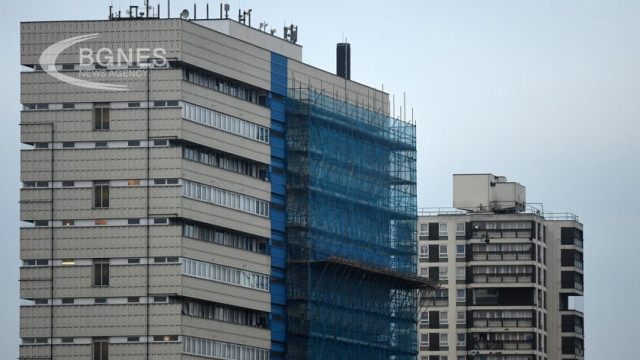A sharp increase in interest rates, which leads to an increase in borrowing costs, a sharp rise in the prices of construction materials... The housing crisis that affected France did not pass by other European countries, reported AFP.
The crisis can also be felt in Germany; according to the Eduard Pestel Institute, Germany will lack 700,000 homes by 2023. According to other estimates, the number is over one million.
Making the issue a priority, Olaf Scholz's government, in power since the end of 2021, has pledged to build 400,000 new homes a year, but the target is far from being met. The situation has been worsened by the crisis in the construction sector in the last year.
In a country where 49% of the population are renters, rents in major cities have risen sharply: +40% in Berlin, 32% in Leipzig, and 21% in Cologne between 2018 and 2023, according to real estate portal Immoscout24.
In the fall, the government announced an €18bn social housing plan, tax breaks for builders, an end to strict energy standards, and a €500m budget to convert office and commercial buildings into homes.
Rising land prices and building costs, combined with the neglect of social housing by successive governments, have resulted in a chronic shortage of affordable housing in Ireland.
Average rents have doubled since 2010. In Dublin, they already exceed €2,000 a month, which is equivalent to the salary of many civil servants, and property prices are up to ten times higher than the average annual salary in the country.
The added pressure on demand from a growing influx of refugees fueled a debate that helped spark Dublin's worst riots in decades in November.
The number of people in emergency accommodation has grown to such an extent that in December the government announced that due to a lack of places some asylum seekers would be offered tents.
The executive is aiming for 33,000 new homes a year in the period to 2030, which is well below expected needs.
In Britain, inflation and rising interest rates have also exacerbated the housing crisis in recent months.
In England alone, more than 157,000 households became homeless, up almost 9% in the 12 months to March 2023. The number of households living in temporary accommodation rose by 10% to 104,510, which was the highest level since official statistics began in 1998.
Although the National Federation for Housing estimates the need for 340,000 new homes a year in England, the government is struggling to meet its pledge to build 300,000 homes a year from 2025 onwards. However, it is confident of achieving its target of one million new homes over the legislative period (2019-2024).
Among the measures announced for England - housing is a devolved responsibility in all four of Britain's nations - are grants for first-time home buyers, reform to provide better protection for tenants and tighter state control of building planning by local authorities.
In Portugal, where the number of homeless people has risen sharply, the housing crisis has deepened since 2011, when the bankrupt country opened up to foreign investment, which contributed to a sharp rise in property prices.
To ease housing shortages and curb property speculation, the government in October introduced measures to encourage owners to rent out traditional homes by suspending new licenses for furnished tourist accommodation (such as Airbnb) in stressed areas. In addition, the government plans to build around 32,000 new homes.
The system of "golden visas", which grant residence permits to wealthy investors, has also been revised.
On February 3, the country witnessed its third major day of demonstrations in less than a year demanding a solution to the problem.
Immigration, the cost of living, and the housing crisis, which affects mostly young Dutch people, were the main topics in November's parliamentary elections, which were won by the far right.
Affordable housing is difficult to find, both for students and asylum seekers. According to a report published in November, the average price of a home is €430,000.
"This crisis has developed over the past two decades as a result of a policy aimed at encouraging the market to replace the state in providing housing," a senior UN official said in December, citing a recent study that found the number of housing shortages in the Netherlands to be about 390,000.
The Swedish Housing Agency estimates that between now and 2030, an average of 67,300 new homes will be needed per year.
Since 2010, however, around 70,000 homes have already been built in the capital, which equates to 20% of Stockholm's housing stock.
But "newly built homes don't sell" because they are too expensive, explains Oscar Lovelid, who is in charge of construction projects in the city. Rents are also very high and it is very difficult to get a low rent contract.
He believes that this situation is largely due to the lack of a national housing policy since the 1990s. /BGNES







